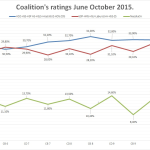On Thursday, Parliament adopted amendments to the Law on Archive Materials and Archives.
With 94 votes in favour and 7 abstentions, on Thursday, Parliament adopted the amendments to the Law on Archive Materials and Archives, which will enable access to the documents kept by the State Archives and created prior to 22 December 1990, when the current constitution was adopted.
The amendments were proposed by MOST, while it was still part of the ruling coalition. MOST’s MP Nikola Grmoja said on Wednesday, while presenting the final version of the law, that confronting all aspects of the communist regime was an essential prerequisite for the democratisation of Croatian society. “Only if we have full knowledge about key people and events in the then Yugoslavia can we come to a proper conclusion about what happened in the 1990s or even about what is happening today.” said Grmoja during the debate.
MOST has insisted on the unconditional submission of archive materials to the archives as soon as possible, and rejected accusations that it was just a populist proposal made ahead of the forthcoming local elections.
The issue of access to these archives was a stumbling block between HDZ and MOST while they were in the government together. The Ministry of Culture was preparing its own version of the law. Grmoja said earlier that it was strange that the government had submitted only three amendments to the MOST’s proposal, although it had previously asked for nine. He also mentioned a meeting he had at the Ministry of Culture where, as he claims, Culture Minister Nina Obuljen grew so angry that she allegedly threw a mobile phone at him, while a state secretary cursed him.
The Minister has denied the allegations. “We were heatedly discussing some issues related to the location of where the archives should be placed, but, of course, I did not throw a mobile phone at him.” said Minister Obuljen. “What is true is that the government has supported the opening of the archives, that we have submitted the new law to the public consultation process, that we have supported this proposal, and that we have improved it, because it was full of defects and was unenforceable.” said Obuljen in the Parliament.
The new law provides for the personal data to be available immediately after the death of the person in question, with the exception of specially protected categories of data, such as those pertaining to medical issues.
A few days ago, MOST’s MP Miro Bulj blamed the latest political crisis on the issue surrounding the archives and the alleged activities of UDBA, a secret police which existed in the former Yugoslavia. “MOST is guilty because we demand that business crimes should be investigated in Agrokor and the Croatian National Bank. If you did your job, if you were not obedient to your party leaders, today we would not be in the Parliament. We know that the problem is the archives, because in them, you can find people working for Todorić, the owner of Agrokor.” said Bulj.
It remains to be seen whether the new law will lead to new divisions or solve some of the historical issues dividing the country.








